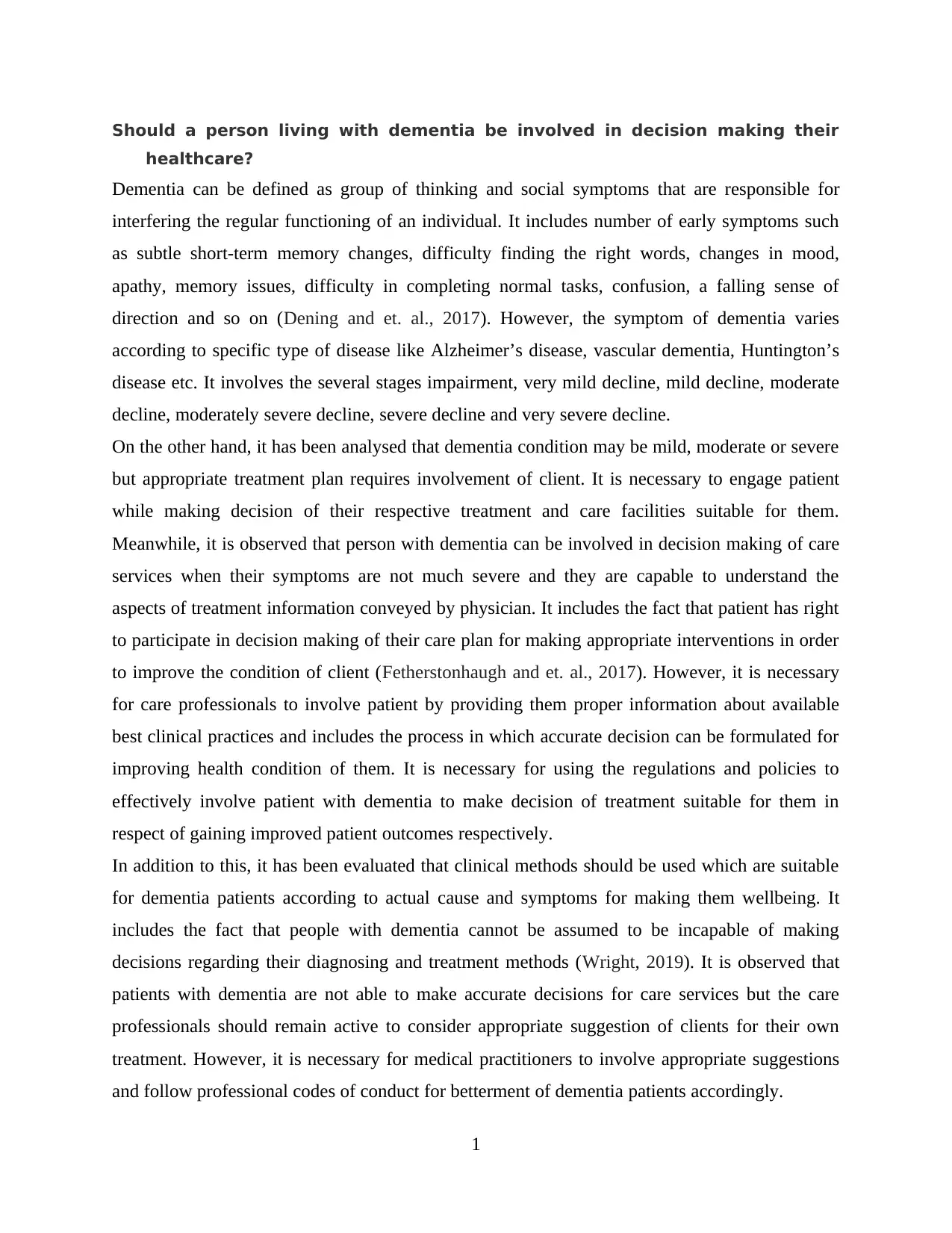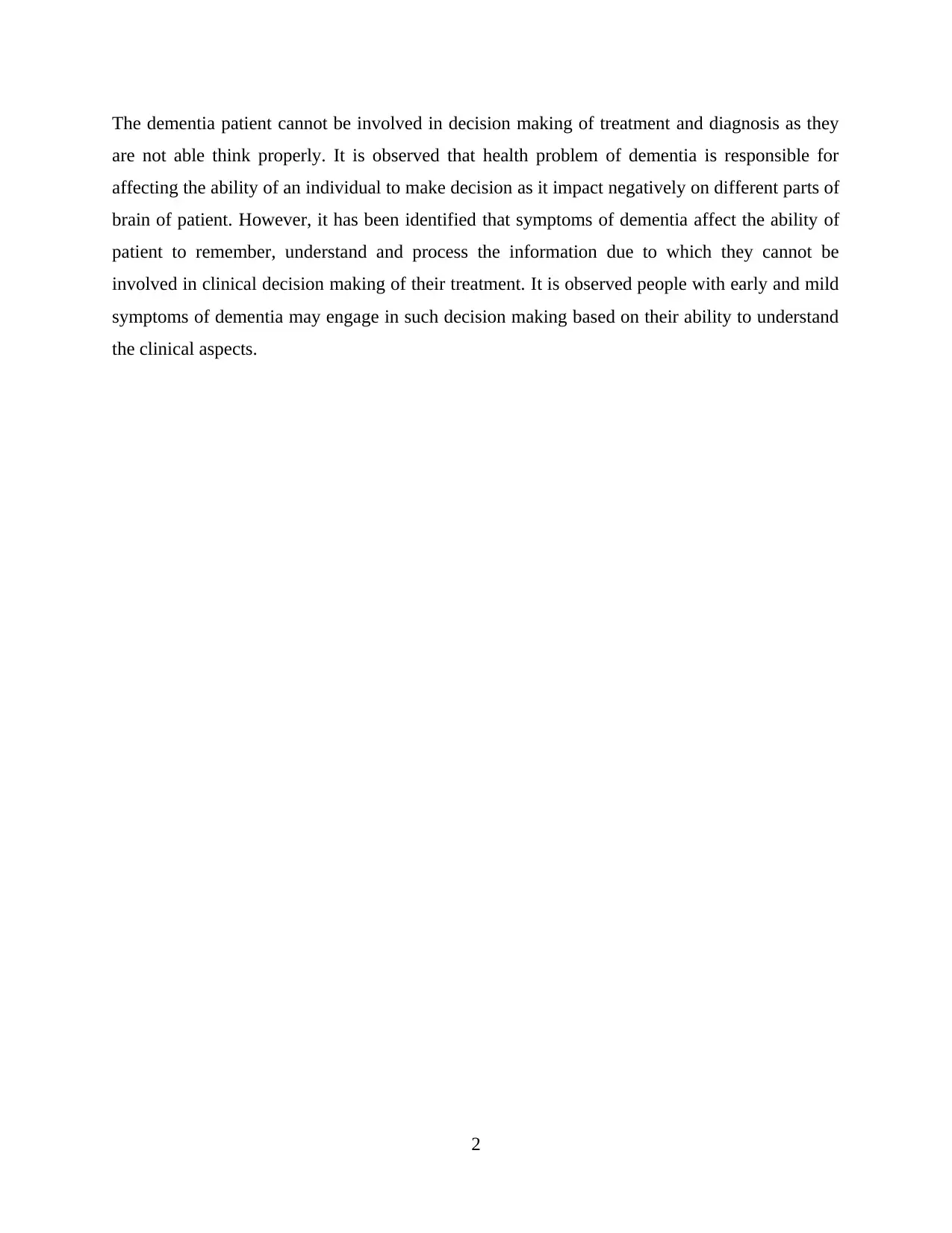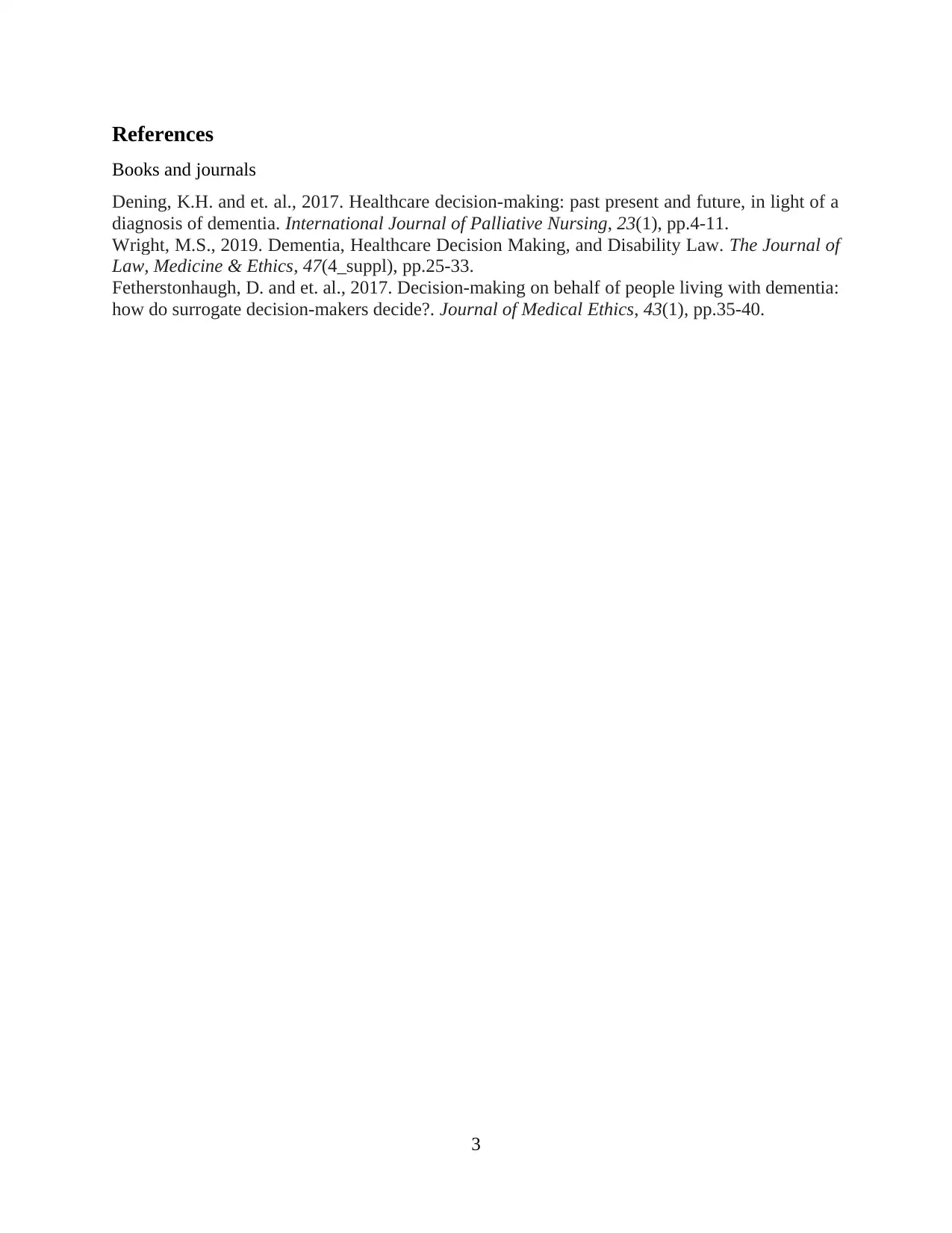Should Dementia Patients Participate in Healthcare Decision-Making?
VerifiedAdded on 2023/01/07
|5
|727
|46
Essay
AI Summary
This essay addresses the critical question of whether individuals with dementia should be involved in making decisions about their healthcare. It begins by defining dementia and outlining its various symptoms and stages, emphasizing the cognitive impairments that can affect a person's ability to function. The essay then explores the complexities of patient involvement in treatment planning, highlighting that while severe cases may limit decision-making capacity, those with milder symptoms may still participate. It discusses the importance of providing patients with proper information, using appropriate clinical methods, and adhering to professional codes of conduct. The paper also acknowledges the counterargument that severe dementia can impair decision-making abilities, affecting memory, understanding, and information processing. Ultimately, the essay examines the delicate balance between respecting patient autonomy and ensuring appropriate care for individuals living with dementia, emphasizing the need for healthcare professionals to consider the patient's input when possible.
1 out of 5












![[object Object]](/_next/static/media/star-bottom.7253800d.svg)